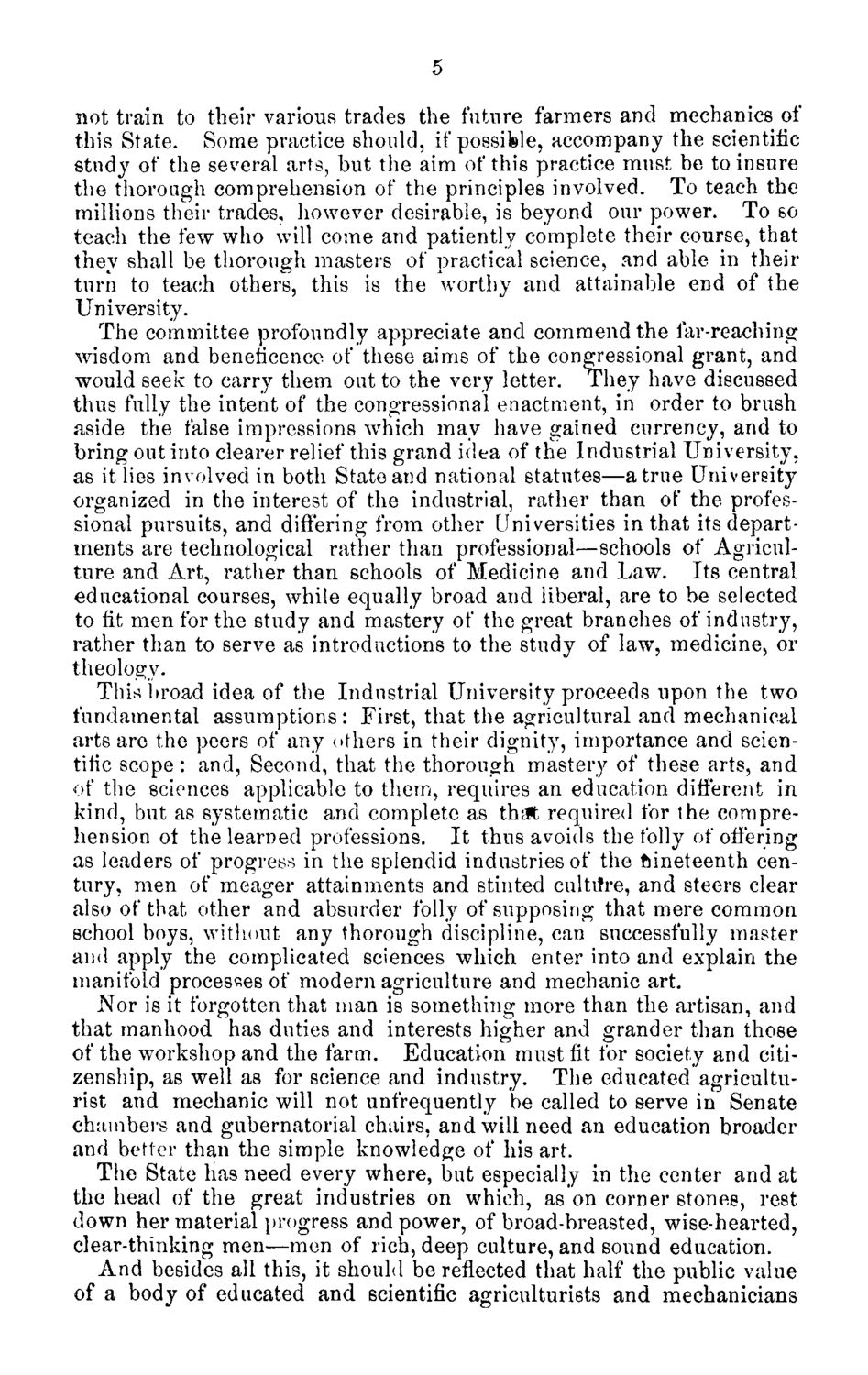| |
| |
Caption: Course Catalog - 1867
This is a reduced-resolution page image for fast online browsing.

EXTRACTED TEXT FROM PAGE:
not train to their various trades the future farmers and mechanics of this State. Some practice should, if possible, accompany the scientific study of the several arts, but the aim of this practice must be to insure the thorough comprehension of the principles involved. To teach the millions their trades, however desirable, is beyond our power. To so teach the few who will come and patiently complete their course, that they shall be thorough masters of practical science, and able in their turn to teach others, this is the worthy and attainable end of the University. The committee profoundly appreciate and commend the far-reaching wisdom and beneficence of these aims of the congressional grant, and would seek to carry them out to the very letter. They have discussed thus fully the intent of the congressional enactment, in order to brush aside the false impressions which may have gained currency, and to bring out into clearer relief this grand idea of the Industrial University, as it lies involved in both State and national statutes—a true University organized in the interest of the industrial, rather than of the professional pursuits, and differing from other Universities in that its departments are technological rather than professional—schools of Agriculture and Art, rather than schools of Medicine and Law. Its central educational courses, while equally broad and liberal, are to be selected to fit men for the study and mastery of the great branches of industry, rather than to serve as introductions to the study of law, medicine, or theology. This broad idea of the Industrial University proceeds upon the two fundamental assumptions : First, that the agricultural and mechanical arts are the peers of any others in their dignity, importance and scientific scope: and, Second, that the thorough mastery of these arts, and of the sciences applicable to them, requires an education different in kind, but as systematic and complete as th;*t required for the comprehension of the learned professions. It thus avoids the folly of offering as leaders of progress in the splendid industries of the fiineteenth century, men of meager attainments and stinted cultifre, and steers clear also of that other and absurrler folly of supposing that mere common school boys, without any thorough discipline, can successfully master and apply the complicated sciences which enter into and explain the manifold processes of modern agriculture and mechanic art. Nor is it forgotten that man is something more than the artisan, and that manhood has duties and interests higher and grander than those of the workshop and the farm. Education must fit for society and citizenship, as well as for science and industry. The educated agriculturist and mechanic will not unfrequently be called to serve in Senate chambers and gubernatorial chairs, and will need an education broader and better than the simple knowledge of liis art. The State has need every where, but especially in the center and at the head of the great industries on which, as on corner stones, rest down her material progress and power, of broad-breasted, wise-hearted, clear-thinking men-—men of rich, deep culture, and sound education. And besides all this, it should be reflected that half the public value of a body of educated and scientific agriculturists and mechanicians
| |